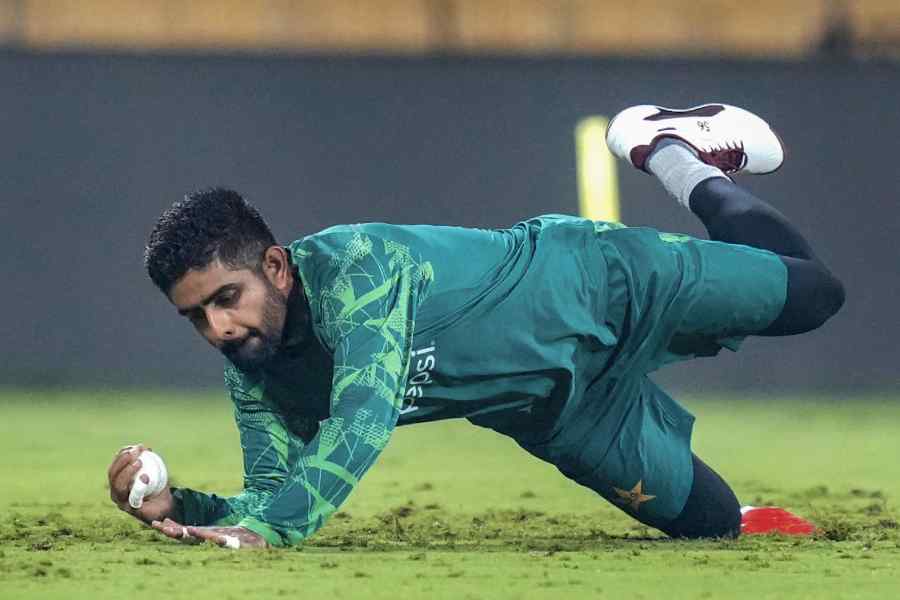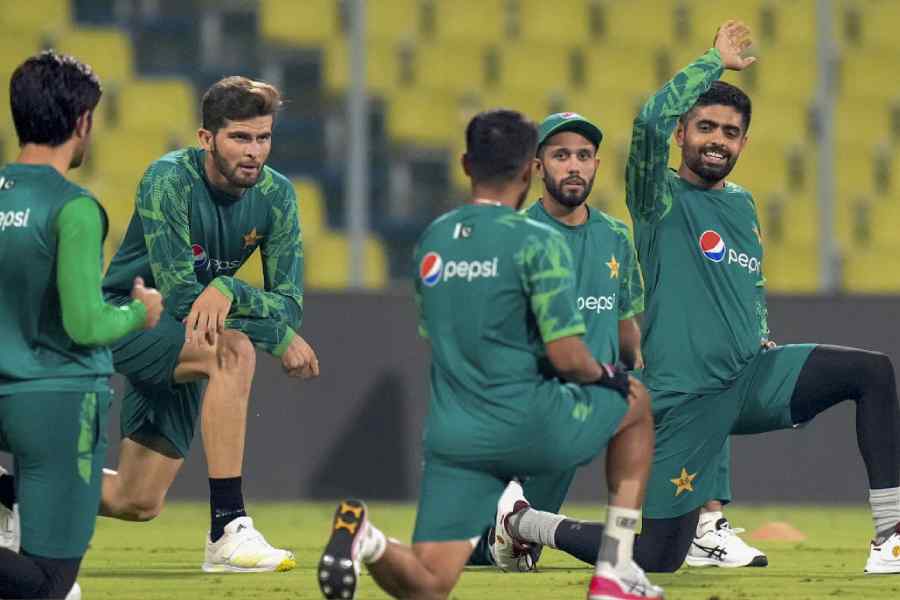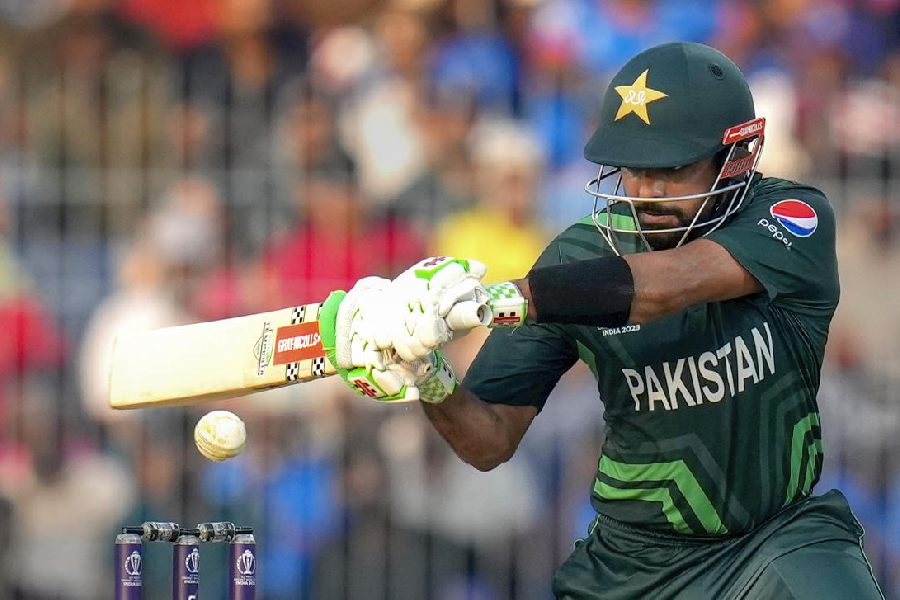The intersection below the Ashram Road flyover in Usmanpura, Ahmedabad, was bustling around noon with fans trying to get to the nearest Metro station or find a cab to reach the Narendra Modi Stadium.
Another couple of hours remained for the big-ticket clash against Pakistan on October 14 when the police on duty suddenly sprung into action and stopped vehicles approaching the turn on the left. A couple of minutes later, the sound of sirens alerted all as the Pakistan team bus made its way out of the Hyatt Regency Hotel.
The cavalcade included another couple of roof-mounted lightbar police vehicles in the front and rear, apart from an ambulance. It whizzed past in a jiffy but the traffic was made to wait for another five-odd minutes.
There were no dummy buses or tinted window panes to keep the players' identity a secret. This, in a venue Pakistan had been circumspect about playing at much before the fixtures were announced and even contemplated doing a recce before their arrival.
Security for the Pakistan team in this World Cup has been tight but nothing to make the players feel suffocated. The team even went out for dinner in Hyderabad and Bangalore though entry had been restricted for the public at their chosen restaurants.

Pakistan's captain Babar Azam during a practice session ahead of the ICC Men's Cricket World Cup 2023 match between Pakistan and South Africa, at M.A. Chidambaram Stadium, in Chennai, Wednesday, Oct. 25, 2023. PTI picture
The circumstances though were different in Ahmedabad. Given the sensitive nature of the situation, the Hyatt Regency, where Babar Azam’s men had stayed for four days, was kept out of bounds for the common man. A few floors had been specifically reserved for the players, support staff and security with only regular guests allowed to stay at the hotel.
Even journalists with valid accreditation were denied entry. “We have been restricted to the hotel here because of security,” Babar said on the eve of their showdown with India.
The hotels have been kept off limits for the public in most places the team has played so far. The employees have been screened and only select guests have been permitted to stay during the Pakistan players’ presence.
No gun-toting NSG or RAF personnel on rooftops of stadiums but Pakistan’s practice sessions in Ahmedabad were under strict vigil with personnel from the special branch and local police co-ordinating to ensure it remained foolproof.
Net practice of both teams was held at an area adjoining the main stadium that was covered on all sides by a thick black material, which meant nothing could be viewed even from a distance. The only way one could get to see the players at practice was by climbing the upper tiers of the galleries.
It wasn’t that bad in places like Bangalore and Chennai where their batting and bowling could be monitored from a safe distance in the lower tier of the stands. That’s the normal practice at those venues and applies to all teams. In Hyderabad, where Pakistan first played a match in India since 2016, outsiders weren’t allowed during training sessions.
PCB chief Zaka Ashraf had said before the team’s departure that “the BCCI had assured the ICC that all teams will be provided the best security”. Like Pakistan, most teams have been travelling in the World Cup on chartered flights. They have been taking the normal exit route from the airports and are not being whisked away from the tarmac itself. Passenger movement is of course monitored during the players’ presence.
There has been no security lapse and a spokesman for the Pakistan team in India told The Telegraph that they are “satisfied” with the arrangements.
The PCB, however, did complain to the International Cricket Council over crowd behaviour in Ahmedabad. Captain Babar was booed during the toss and videos circulating on social media showed “Jai Shri Ram” chants directed at Mohammad Rizwan after he was dismissed. The PCB has also complained that Hasan Ali had been taunted with similar chants while fielding.
Former IPS officer Yashovardhan Jha Azad, who held the post of special director in the Intelligence Bureau, thinks that security hasn’t been stifling this time because there has been no terror threat.
“There’s a world of difference between Pakistan playing in India and India playing in Pakistan. The threat profile in 2004 and 2006 got us a presidential scale of security from the highest level and, yes, went through some hard times, nightmarish at times. No issues like that here,” Azad, who accompanied the team on those tours as security adviser, told this newspaper.
Azad was also with the Pakistan team when they toured India in 1998-99 and 2004-05.
“There is no need to hype security. It should be a normal exercise. The kind of threats we received in Karachi in 2004 was horrible. It was hell and getting the team out from there was a nightmare,” he said.
There were provisions for evacuating the team from the stadium itself in helicopters in case of an emergency on that tour besides having at least two dummy buses whenever the team moved out of the hotel.
“I would still be wary of India playing in Pakistan. Too high a threat.... Besides, we should have respect for our martyrs in Kashmir,” Azad said.











